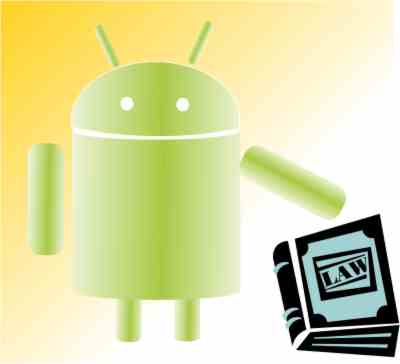| Supreme Court Seeks Guidance On API Copyright Issue |
| Written by Sue Gee |
| Friday, 16 January 2015 |
|
The latest twist in the seemingly interminable Android copyright legal wrangle between Oracle and Google is that the US Supreme Court has asked the US Solicitor General for the views of the Obama administration before it deliberates the issue further.
To understand the significance of this you need to have been following the Oracle versus Google lawsuit that was first in the news in 2010, see Oracle sues Google for Android Java use. After a lengthy court case with lengthy delays, the jury in the Oracle v. Google lawsuit found there had been no infringement of Oracle's patents. This left the issue of whether Google had infringed patents held by Oracle and in June 2012 Judge Alsup, a Federal Court judge ruled that the elements replicated by Google in the implementation of Android were "free for all to use under the Copyright Act". This seemed to most programmers to be a triumph for common sense as the whole idea of an API is that it saves starting from scratch and reinventing the wheel each time some a common requirement is encountered. The fact that Judge Alsup had Java programming experience meant that he too could appreciate the idea that APIs should not be subject to copyrightable. Oracle, however, won the next round in May 2014 when the United State Court of Appeals for the Federal Circuit overturned the original verdict and ruled that APIs can be copyrighted. In October 2014 Google petitioned the Supreme Court to reverse this judgement asking it to consider the question: "Whether copyright protection extends to all elements of an original work of computer software, including a system or method of operation, that an author could have written in more than one way." To add weight to Google's petition, the Electronic Frontier Foundation filed an amicus brief signed by 77 high profile computer scientists including five Turing Award winners, four National Medal of Technology winners, and numerous fellows of the Association for Computing Machinery, IEEE, and the American Academy of Arts and Sciences. This was the second such amicus brief. The first, directed in June 2013 to the US Court of appeals had been signed by 33 computer scientists. Its premise was: The freedom to reimplement and extend existing APIs has been the key to competition and progress in the computer field—both hardware and software and goes on to argue that the fact that interfaces are uncopyrightable gives developers the freedom to create novel software and that copyrighting APIs would not only block innovation but would make different systems incompatible. The additional argument in the recent extended brief, an 84-page pdf which you can read in our report Computer Scientists Petition Supreme Court Over API Copyright , is that the Federal Cicuit's decision: "has disrupted decades of settled expectations that APIs are not copyrightable". It now seems that the Supreme Court finds the question of software copyright so tricky and so significant that it doesn't want to consider it without having an executive overview. No deadline has been set for the Solicitor General to deliver the official White House opinion on this matter. It is to be hoped that the question of software copyright is one that the Obama administration is concerned about. Perhaps a petition on the White House We the People signed by thousands of programmers might help. If you start one make sure to tell us.
More InformationSupreme Court Proceedings in respect of Google v Oracle Related ArticlesComputer Scientists Petition Supreme Court Over API Copyright Android Copyright Battle Goes To Supreme Court Judge Rules Oracle's Java APIs Not Copyrightable Oracle v. Google: Jury finds No Patent Infringement Oracle v Google Judge Is A Programmer! Oracle v Google - Are Computer Languages Copyrightable?
To be informed about new articles on I Programmer, install the I Programmer Toolbar, subscribe to the RSS feed, follow us on, Twitter, Facebook, Google+ or Linkedin, or sign up for our weekly newsletter.
Comments
or email your comment to: comments@i-programmer.info |
| Last Updated ( Thursday, 28 February 2019 ) |



